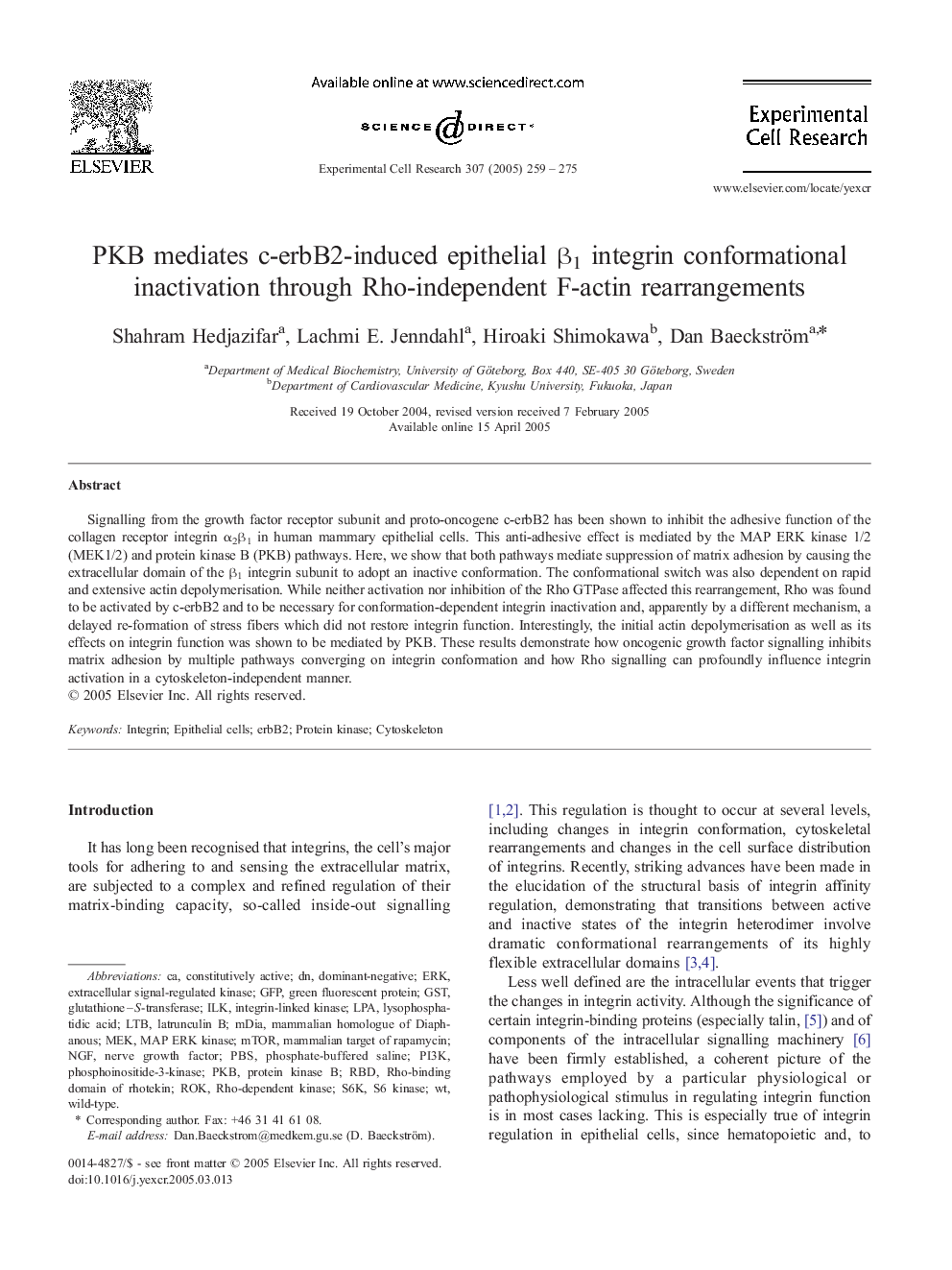| Article ID | Journal | Published Year | Pages | File Type |
|---|---|---|---|---|
| 10905215 | Experimental Cell Research | 2005 | 17 Pages |
Abstract
Signalling from the growth factor receptor subunit and proto-oncogene c-erbB2 has been shown to inhibit the adhesive function of the collagen receptor integrin α2β1 in human mammary epithelial cells. This anti-adhesive effect is mediated by the MAP ERK kinase 1/2 (MEK1/2) and protein kinase B (PKB) pathways. Here, we show that both pathways mediate suppression of matrix adhesion by causing the extracellular domain of the β1 integrin subunit to adopt an inactive conformation. The conformational switch was also dependent on rapid and extensive actin depolymerisation. While neither activation nor inhibition of the Rho GTPase affected this rearrangement, Rho was found to be activated by c-erbB2 and to be necessary for conformation-dependent integrin inactivation and, apparently by a different mechanism, a delayed re-formation of stress fibers which did not restore integrin function. Interestingly, the initial actin depolymerisation as well as its effects on integrin function was shown to be mediated by PKB. These results demonstrate how oncogenic growth factor signalling inhibits matrix adhesion by multiple pathways converging on integrin conformation and how Rho signalling can profoundly influence integrin activation in a cytoskeleton-independent manner.
Keywords
S6KPI3KPBSLPAERBB2PKBGFPLatrunculin BGSTmTORNGFLTBmDiaERKRBDS6 kinaselysophosphatidic acidILKIntegrinconstitutively activeROKepithelial cellsdominant-negativenerve growth factorphosphoinositide-3-kinaseMEKPhosphate-buffered salinewild-typemammalian target of rapamycingreen fluorescent proteinProtein kinaseprotein kinase BCytoskeletonextracellular signal-regulated kinaseintegrin-linked kinase
Related Topics
Life Sciences
Biochemistry, Genetics and Molecular Biology
Cancer Research
Authors
Shahram Hedjazifar, Lachmi E. Jenndahl, Hiroaki Shimokawa, Dan Baeckström,
